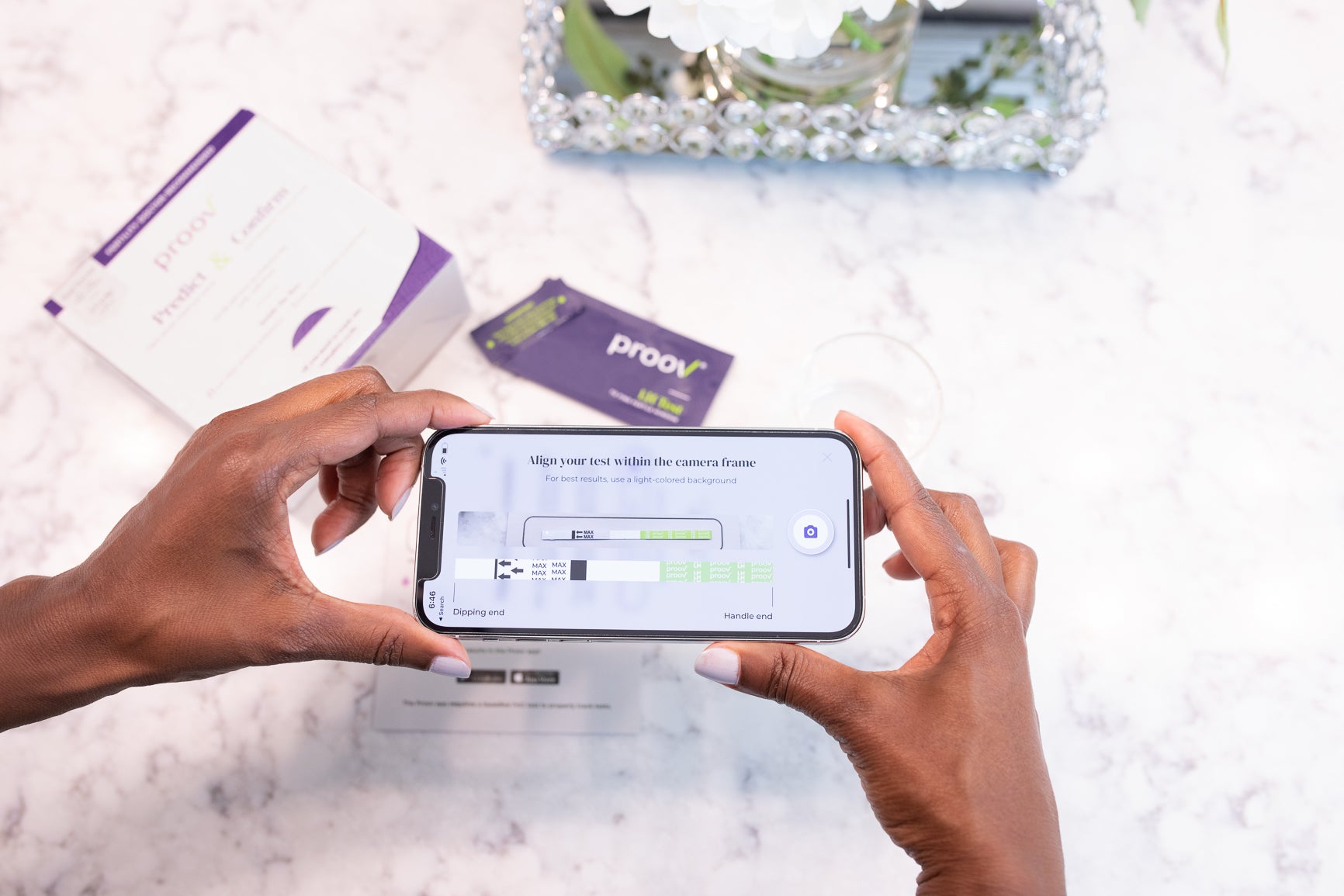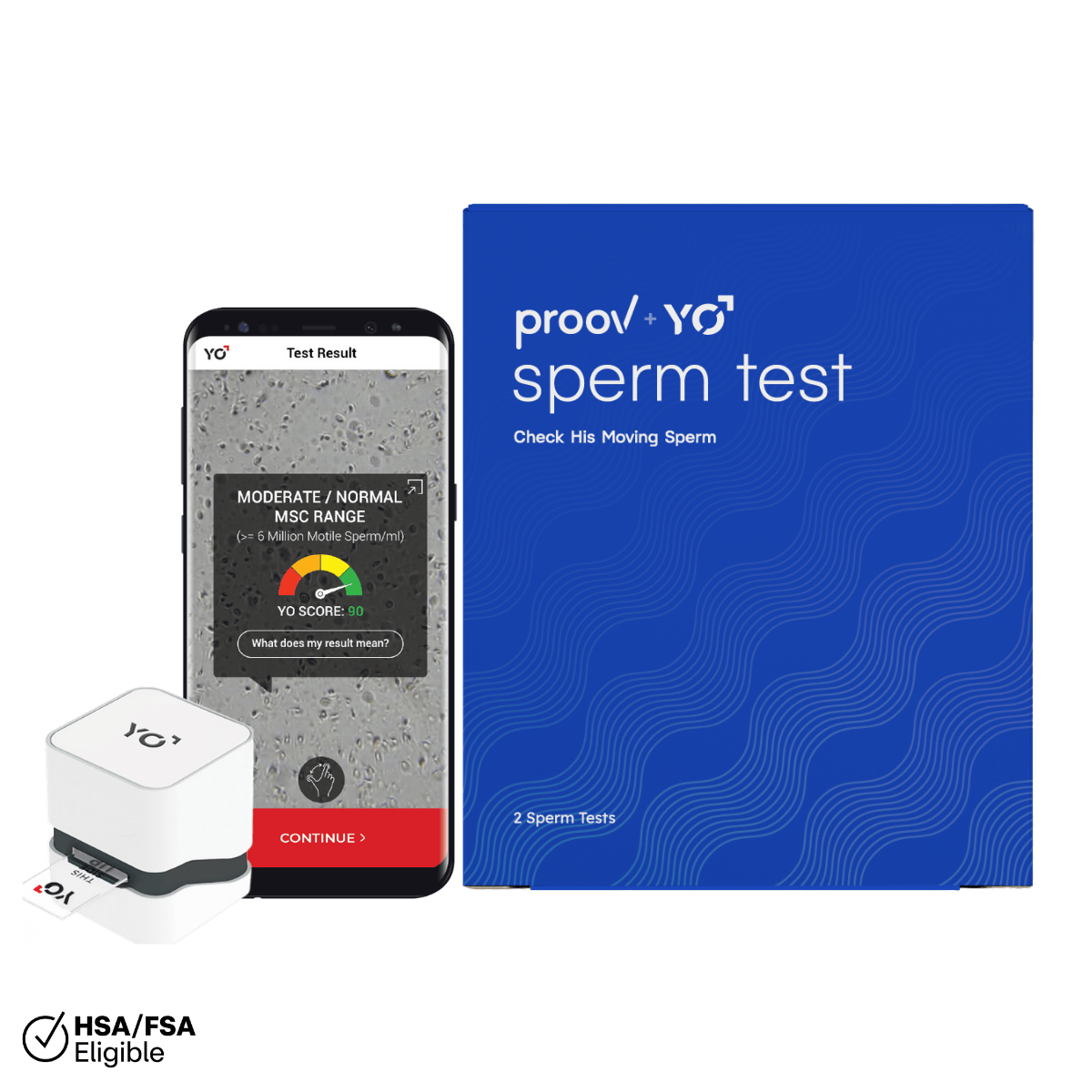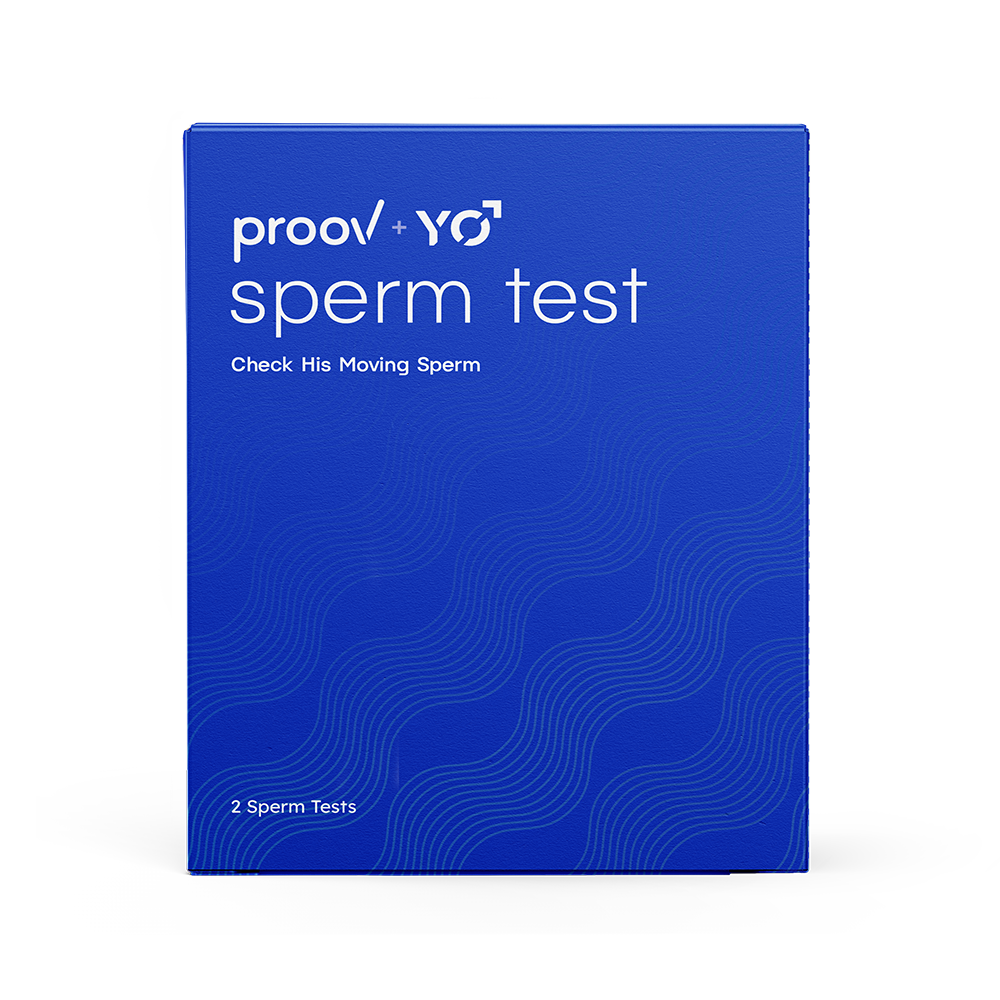If you’re trying to conceive, then you probably know that there are many different fertility hormone tests on the market — ovulation tests, pregnancy tests, ovarian reserve tests, and many more! Understanding each fertility test and what their results mean can empower you with information on your journey.
Take an ovulation test, for example: ovulation tests help you and your partner time intercourse around peak fertility. However, you may have heard that an ovulation test can be positive if you’re pregnant.
Is that true? Read on to learn if a positive ovulation test is a sign of pregnancy!
What’s the difference between a positive ovulation test and a positive pregnancy test?
Since ovulation and pregnancy tests measure two different hormones, it makes sense that each positive gives you a different piece of information.
Pregnancy tests measure Human Chorionic Gonadotropin (hCG), which is only produced when — you guessed it — you’re pregnant! A positive pregnancy test confirms pregnancy.
Ovulation tests, on the other hand, measure luteinizing hormone (LH). LH spikes right before ovulation and triggers ovulation to occur.
Contrary to popular belief, a positive ovulation test does not actually tell you whether or not you’ve ovulated. Instead, a positive ovulation test predicts that ovulation should be coming soon, by measuring the hormone that causes ovulation to occur.
This helps you time intercourse around ovulation (a.k.a. when you’re most fertile) so sperm has the best possible chance of meeting that egg!
So will an ovulation test be positive if I’m pregnant?
To be clear, ovulation tests are intended to be used to predict ovulation and help you time intercourse around peak fertility to allow for the best possible chance at conception. They’re not meant to detect pregnancy and a positive ovulation test does not mean you’re pregnant — that’s what we have home pregnancy tests for.
However, you may have heard about some women using their ovulation tests as a pregnancy test. While this certainly is possible, we don’t recommend doing it because, well, that’s not what ovulation tests are for!
Wait — how does that work?
As we mentioned, ovulation tests measure LH in urine. Pregnancy tests, on the other hand measure human chorionic gonadotropin (hCG) hormone levels in urine. HCG is produced by cells in the placenta that nourish the embryo once it has attached to the uterine lining and tells a woman’s body she’s pregnant.
It just so happens that LH and hCG are both glycoproteins, or proteins built with a sugar attached to them. As we know, the functions of these two hormones are vastly different: LH triggers ovulation, while hCG helps maintain pregnancy. However, their chemical structures are super similar.
The structures are so similar, in fact, that some ovulation tests cannot tell the difference between LH and hCG in urine! While it’s unlikely that you’d test with an ovulation test past peak fertility, some women claim a positive ovulation test several days after ovulation has occurred may be a sign of pregnancy.
But in general, we’d stick to testing for ovulation with ovulation tests and pregnancy with pregnancy tests.
When can I start testing for pregnancy?
While ovulation tests should be taken early in your cycle, it’s typically recommended that you wait to take a home pregnancy test until after a missed period, roughly two weeks after ovulation. It can take about 6 to 10 days for a fertilized egg to successfully implant.
However, we know the two week wait between a positive ovulation test and your next expected period can feel agonizing. Luckily, there are some early home pregnancy tests that can detect hCG in urine up to 5 days before an expected period so you can know even sooner.
Can you tell me more about PdG tests?
Absolutely. PdG tests are a completely different kind of fertility hormone test than an ovulation test or a pregnancy test.
You’ll remember that ovulation tests predict ovulation and pregnancy tests confirm pregnancy. Ovulation tests measure LH which spikes before ovulation and pregnancy tests measure hCG increases once you’re pregnant.
But what happens in between? That’s where PdG comes in!

As we mentioned, an ovulation test doesn’t actually tell you whether or not you’ve ovulated. A PdG test, on the other hand, does!
PdG is the urine marker of progesterone, the hormone released only after ovulation occurs that is necessary for ensuring your body is ready for pregnancy. Progesterone makes your uterus “sticky” enough so that a fertilized embryo can implant.
You’ll test your PdG levels with something like Proov Confirm after you receive an ovulation test positive for several days. While elevated PdG confirms ovulation, it’s critical that your PdG levels remain elevated for several days during the two week wait to allow for a higher chance at conception.
In fact, studies show that elevated PdG levels during that time period are correlated with a 92% chance of successful pregnancy, compared to just a 19% chance of pregnancy in those with lower levels.
Luckily, the Proov Confirm testing protocol will help you test on those key days to help you understand your levels to get pregnant.
While an ovulation test can be positive if you’re pregnant, it’s best to use each pee stick as it’s intended to be used. Have questions about our tests? Reach out to us!
Written by: Dr. Amy Beckley, PhD, Founder and Inventor of the Proov test — the first and only FDA-cleared test to confirm ovulation health at home.
Medically reviewed by: Dr. Joshua U. Klein, MD, FACOG
Written on 9/19/20
Updated on 5/5/22














